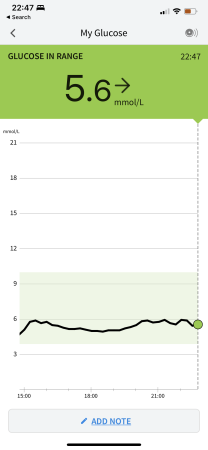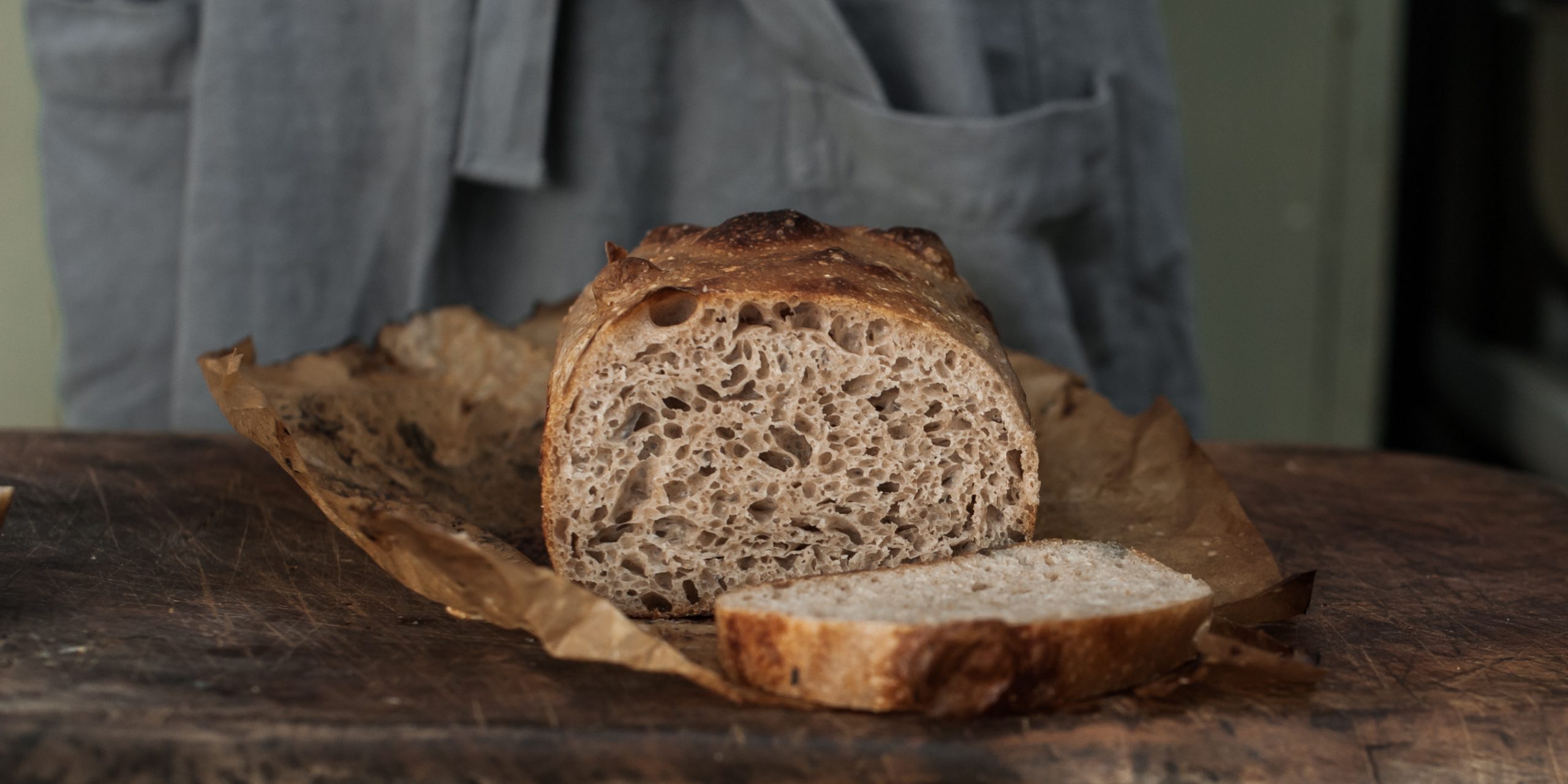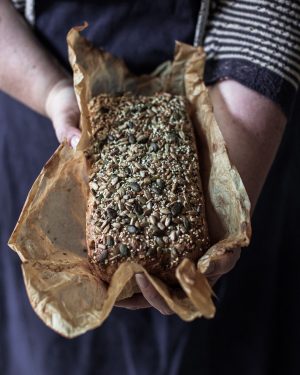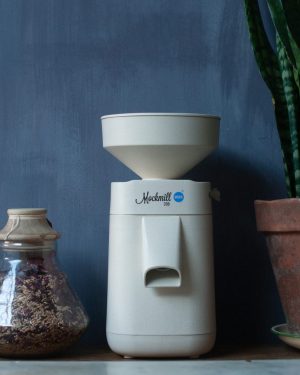Sourdough bread & diabetes: is sourdough the best bread for people with diabetes?
I began noticing that students would report improvement in their mood from eating our bread. One particular student had a significant change in her pre-diabeties condition when she changed her bread to our bread making protocol
We take look at how Sourdough fermentation changes the way our bodies take up carbohydrate.
Over the last few years, awareness of diabetes has risen as the condition has affected more and more people. Increasing levels of type 2 diabetes are being linked to rising levels of obesity and more sedentary lifestyles, and the impact of this on individuals and the health service is making headlines. Dr Elisabeth Philipps, our in-house nutritionist, says that she receives a lot of enquiries from people with diabetes, asking for information and advice on whether they can include sourdough bread in their diets. There is a growing body of evidence suggesting that sourdough can not only be enjoyed as part of a balanced diet, but that it can also help with managing blood sugar levels – crucial when dealing with diabetes – in addition to other health benefits. It’s an area that we at the Sourdough School have been researching in some detail, reading the scientific publications, using the shared clinical knowledge and expertise of Dr Elisabeth and Dr Alex Davidson, our in-house GP, as well as talking to other respected people involved in pushing forward our understanding of the link between diabetes and diet.
Some of the people with diabetes who we speak to have been looking into low-carbohydrate diets as a way to control blood glucose levels. Dr Alex notes that “diet is one of the key ways diabetics can help to control their sugar levels”, and this is always her starting point with the diabetic patients she sees, as simple changes can make dramatic improvements.
Dr Elisabeth has also heard from many people living with diabetes who have been advised to drastically reduce the amount of bread they are eating. There is much debate over whether a low-carbohydrate diet is an effective way of controlling diabetes, but the NHS website recommends that people with diabetes follow a healthy, balanced diet. The current advice from Diabetes UK, following a comprehensive review, is that a low-carb diet can be effective for some adults with type 2 diabetes, but is not recommended for children or people with type 1 diabetes.

Can bread be part of a diet for people living with diabetes?
As Alex explains, she educates people with type 2 diabetes that “carbohydrates in foods have the biggest impact on blood sugar, so it is important they avoid refined and processed sources of carbohydrate such as white flour, cereals, white rice, and potatoes, as well as pasta”. These types of dietary carbohydrates can lead to a spike in blood sugar levels. But as Alex says, this means that many people with diabetes get confused and think they should avoid eating all types of carbohydrate, including fermented breads made from whole-grains.
Elisabeth agrees with Alex that confusion can play a part when people with type 2 diabetes try to make optimal dietary choices. She says that “it’s important to remember that there is a huge range of bread available, and not all loaves are equal when it comes to nutritional value”. Highly processed white breads are not a great option for anyone. But breads incorporating wholegrains, particularly those that have been produced using a long, slow fermentation as with sourdough, are high in fibre, and contain micronutrients in a form that is easily digestible, are very different.
Choosing which bread is most suitable can be difficult. But, in general, breads and loaves that are homemade or from artisan bakeries are likely to be less processed and won’t contain the long list of additives (which may include sugar) that are common in industrial breads. Advice on which bread to choose is given by Diabetes UK.
The importance of wholegrains and fibre
Bread is often seen as a food to avoid, not just for people with diabetes, but for people trying to lose weight or follow a gluten-free diet. One of the concerns for Elisabeth though is that, as a nutrition practitioner, she sees that eliminating bread from your diet may, for some, also be removing a potentially good and readily available source of fibre. The importance of fibre to promote a healthy digestive system has long been known. But recent research identified from the Sourdough School research team has shown that insoluble fibre, which is found in breads made from wholegrain flours, is important in promoting a healthy gut microbiota. Having a diverse and healthy community of microbes in our gut can have a number of positive effects on our own health. Insoluble fibre (which cannot be digested by the human gut) provides food for these microbes and they, in turn, aid our digestive process and have been found to support a healthy immune system.
A recent study in Finland linked the actions of gut bacteria with a lower risk of the development of type 2 diabetes in people who were considered at risk. The study followed 200 people who were taking part in the wider Finnish Diabetes Prevention Study. Researchers found that higher blood levels of indolepropionic acid were associated with those who did not develop diabetes. Indolepropionic acid is produced by our gut bacteria, and the study also showed that levels of the acid appeared to be positively correlated with the amount of fibre and wholegrains in the participants’ diets.
Sourdough bread and blood glucose
Other work has shown that it’s not just the ingredients used to make the bread that are important. The way the flour is milled and the fermentation methods used can influence how the bread is digested and assimilated by our bodies. Pioneering work, led by Terry Graham, found that blood sugar levels in overweight men showed a smaller spike after eating sourdough bread when compared with yeasted breads. What is especially interesting in this study is that the white sourdough bread resulted in a more moderate blood glucose response than the wholegrain yeasted bread. Further work suggested that sourdough breads made with flours milled from sprouted grains are even more beneficial than either white or wholemeal sourdough bread. A similar result was found from a somewhat
Below is a conversation with Professor Terry Graham I had in 2013 as I began to research the impact of sourdough on fermentation. Further reading on his study into bread and impact on blood sugar can be found here.
Which is the best bread for people with diabetes?
When it comes to a healthy, balanced diet, both Vanessa and Alex agree that making a careful choice about which bread to include, from the ingredients included to how it’s produced, could mean that people with diabetes can enjoy their piece of toast at breakfast time without concerns over its effect on their condition. Elisabeth also suggests that what you eat with the fibre-rich, fermented bread may also help to balance your insulin response and blood sugar further, for example including foods rich in protein, such as eggs, with your breakfast toast.
Much of the research has focused on type 2 diabetes, which can largely be controlled by dietary choices. Wholegrain or sprouted grain sourdough breads have been shown to moderate the blood sugar response after eating. The long, slow fermentation associated with sourdough bread has numerous benefits for digestibility. In addition, the fibre provided by these breads also has a positive effect on both digestion and the immune system.

How you eat your bread really matters
Vanessa will teach you to eat how to eat your bread to help control that rate of assimilation of carbohydrates because it’s not just the kind of bread that makes a difference but how you eat it. So always try to eat your vegetables or a salad before you eat your bread. When you watch the way we eat bread in the Mediterranean diet one of the key differences is that we often eat our bread after our starter, vegetables and protein. This helps to slow down the rate of assimilation of carbohydrate, and research has shown that this way of eating helps to keep our blood sugar levels even, which lowers inflammation and hormone fluctuations.
You might also like to read our previous post: Could sourdough bread help with blood sugar response?








 JUNE COMPETITION: WIN A 1:1 TUTORIAL WITH VANESSA & MORE WORTH OVER £700
JUNE COMPETITION: WIN A 1:1 TUTORIAL WITH VANESSA & MORE WORTH OVER £700
Hi This article gives clear insight into how sourdough bread may affect blood glucose and gut health for people managing diabetes, helping inform smarter meal choices. It also pairs with broader discussions on diabetes treatments and long-term health impacts like those at https://www.pharmacyuk.com/glp-1-cancer-repositioning-diabetes-drugs-fighting-tumours/
Based on my online research, sprouted sourdough bread is the best way to go to minimize glucose spikes. Both sprouting and sourdough formation help to minimize the glycemic load of the bread.
Yes – sprouted breads are very good. It is kind of the same process as sourdough.
I love sourdough bread but I have diabetes.
Does anyone make sourdough bread for diabetics?
Hi Patrick thank you for your question. Not that we are aware of as yet. However the research we have read and the use of glucose monitors ourselves would indicate that wholegrain sourdough bread would be the most suitable. So look for authentic wholemeal sourdough with the highest fibre content you can find, and of course monitor your blood sugar levels when you eat some to see how you respond.
Hello Patrick, it is about wholegrain, adding seeds, and the way you eat your bread that matters. You can watch this for a great video. https://www.youtube.com/watch?v=PrvSLtRLDg0
Just discovered this wonderful website. I’ve just started making sourdough bread (starter from a friend in Norway) and love it. I use a combination of white and whole wheat flour. What is the best flour to use with pre-diabetes?
I would also like to know! Thank you
I’ve found that most “sourdough” bread isn’t really… it still lists yeast as an ingredient, and often has souring agents added (vinegar, fumaric acid, etc.) to give it a sour taste. I’m lucky that I live in a place that produces true sourdough bread (https://stonehousebread.com). But it’s not easy to find in most places. And not easy to make it yourself, either: I’ve tried a couple times to manage my own sourdough starter, but I can’t get the temperature right. I wish someone sold a sourdough mother countertop maintainer.
Hi Jeff – this may help you create your own https://www.sourdough.co.uk/press/how-to-create-a-sourdough-starter/
I’d be going keto and doing intermittent fasting if I was diabetic or IR. Proven ways to send T2D into remission. Then eat unprocessed food. Never use seed based oils.
My husband has just been diagnosed to have diabetes. I have been giving him 1-2 slices of home made sourdough bread for breakfast. From what I have been reading, that should be fine? How about Basmati rice? Does it also have lots of carbo?
Hello Julie. You will have seen the advice given on this page above from our in-house nutritionist and our in-house GP. All carbs (sourdough bread, rice, pasta etc) should be given as wholegrain and not white. So brown rice, brown pasta, and ideally brown sourdough bread. Some people eat smaller portions of carbs also and monitor their blood sugar response. It is also a good idea to see a dietitian so you are very clear about the diet your husband needs. There are good books out there as well that can help guide you. Vx
I wear a continuous gluocose monitor but I am not diabetic. Sourdough is the only bread I can eat without significant rises in blood sugar. Mine normally only rises to about 7.2.
Linden thats great so pleased it enables you to enjoy bread without risk. Lucy x
This information is out of date. The problem with type 2 diabetes isnt glucoes levels it is insulin levels in the blood.
High levels of insulin are caused by insulin resistance in the cells. The way to lower this resistance involves managing how often you have an insulin spike. These spikes happen every time you eat. The second thing is eating food that doesn’t turn easily to glucose. Fat has hardly any effect on insulin levels, protien a low spike. carbohydrates a very high spike. With the lowering of insulin levels the cells relax and allow insulin in thus reversing the diabetes. It is important to have a very low carb diet when suffering from diabetes. If one must eat bread then sour dough bread is the best choice but it will cause weight gain as the body will store the sugars that the carbs are converted to, in order to protect the body. It really is best for diabetics to eliminate all breads, pasta, rice, crackers, grains,and sugars from the diet. 50 gms of carbs only a day. this would be say half an avocado and a banana.
The sad thing is health professionals are behind the ball concerning this disease and are perscribing and advising incorrectly which is adding to and helping create this pandemic.
The food industry makes every effort to cater to vegetarians, vegans, gluten free but diabetes is being ignored.
Hi Scarlet,
Lovely amount of information here from you. Whilst I appreciate your knowledge, there are no absolutes. For example, elimination diets in the way you are suggesting starve microbes that are integral o diversity, and central to health. As you will also appreciate the latest research from Professor Tim Spector the gut microbes of an individual, are central to the way each individual processes the carbs in the first instance. I believe anyone can accuse another professional of being out of date if you want to be contentious, but this is not the only way of looking at the problem and there is confliciint evidence. So you are not wrong, but neither are you right.
Whilst we agree that medical professionals do not have the right information in many instances, and the food industry takes advantage of ignorance, all research to date suggests the diversity of the gut microbiome is critical o health and hormonal balance. So we stand by our article and suggest that people eat wholegrains modestly as part of a varied balanced diet unless a medical professional has said otherwise.
Vanessa Kimbell
I struggle with t1d and see how my blood sugar goes up after The certain kind of bread. Although I want only wholegrain. It depends on kind of grain. But those sprouted usun?? sourdough is the best choice.
Thanks for your thoughts Scarlet. You’re right that insulin resistance also plays a role in development of Type 2 diabetes and this is just one of the “jigsaw puzzle” pieces for this condition including blood glucose levels, insulin resistance, insulin receptor signalling and cell membrane structure, gut microbiome and digestion, homeostatic regulation of the endocrine system and circadian rhythm responses. And of course all of these factors are differently weighted between individuals with T2D. For this reason we decided to focus this article on the gut microbiome and its role in blood sugar levels.
We recommend authentic sourdough bread in moderation, as part of a varied diet, as research suggests that fermented whole grains and using cultured starters, along with the fermenting and baking processes suggested, provides a loaf full of essential fibre that feed the gut microbiome, as well as essential carbohydrates in forms that actually reduce post-prandial blood glucose levels, and therefore insulin spikes (just one of these refs includes: Tucker et al, Effects of breads of varying carbohydrate quality on postprandial glycaemic, incretin and lipidaemic response after first and second meals in adults with diet-controlled type 2 diabetes. 2014 J Func Foods 6:116–125).
Whilst in the case of IR and T2D, carbohydrates should be moderated within the diet and their quality assessed and altered accordingly, a restricted diet for any longer than 4-6 weeks (including low carb and FODMAPs for IBS) is not generally recommended, as long-term restriction reduces nutrient diversity and density. A nutritionist will be able to help devise a suitable personalised programme to suit the body’s ongoing changes and needs from IR, T2D or whatever condition is being addressed.
We agree that advice from some areas of the health profession and food industry needs to be changed to counteract the rise in non-communicable disease such as T2D and we are proud to be a part of that evidence-based scientific community spreading informed health messages.
And thanks for all the other comments and messages on this post – glad we got you talking because we love a scientific discussion at The Sourdough School.
Elisabeth (In-house nutritionist)
You made good points. This sounds like information I’ve heard from Dr Berg, a subject matter expert in this area.
My nutritionist would disagree with your carbohydrate intake suggestion. Would you please cite your sources, or give us your credentials.